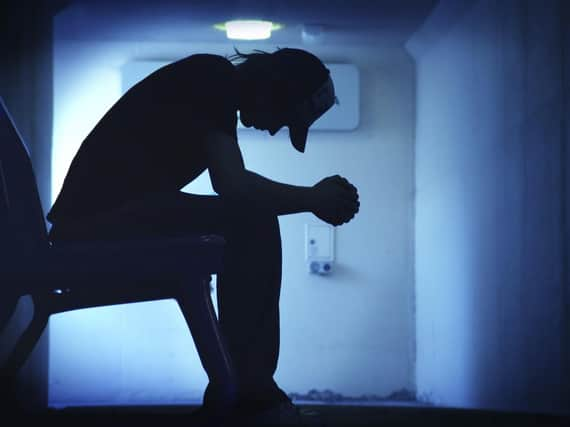Sad rise in suicide rates in Blackpool


New Office for National Statistics figures show that 17 suicides were recorded in Blackpool in 2018, one more than the previous year.
In the UK, the number of suicides climbed to its highest for three decades in 2018, driven by a significant rise in the male suicide rate.
Advertisement
Hide AdAdvertisement
Hide AdA total of 6,507 suicides were registered nationally last year, 12 per cent more than in 2017.
The ONS said three-quarters were men, at a rate of 17.2 per 100,000,which the ONS said this represented a “significant increase from the rate in 2017”. It added that the exact reasons for the rise are unknown, but changes made in the last year to the way coroners record such deaths may be a factor.
In July 2018 the standard of proof used by coroners to determine whether a death was a suicide was lowered.
In Blackpool, the suicide rate, was 13.7 per 100,000 people in the area – above the rate across the North West, at 10.4, and higher than the 11.2 UK average.
Advertisement
Hide AdAdvertisement
Hide AdSamaritans chief executive Ruth Sutherland said: “It is extremely worrying that, for the first time in five years, the suicide rate in the UK has increased, with 686 more deaths than in 2017.
“There has also been a significant increase in the suicide rate in young men since 2017.”
Stuart Hutton-Brown from Counselling In The Community in Blackpool said: “It is a real travesty that rates of suicide are rising. For 17 people in Blackpool to reach the point where life felt unbearable during 2018 is heart-breaking. With all the media attention that mental health has received recently we had hoped that the stigma was reducing, but it seems that for men, the need to ‘be strong’ still stops people accessing the help they need.”
“We will continue to monitor the recent increase, to help inform decision-makers and others that are working to protect vulnerable people at risk.”
Advertisement
Hide AdAdvertisement
Hide AdIt’s our experience that middle-aged men find it particularly difficult to come forwards, probably because they were brought up during a ‘man-up’ era.
“When a person does reach out for help, which is often when they are at breaking point, they may have to wait months to see an NHS therapist.
“We help an average of 60 people-per-week, a figure increasing week-by-week
We believe that the current system of funding mental health support is broken and a major review is needed.”
• If you’re struggling to cope then call Samaritans on 116 123.